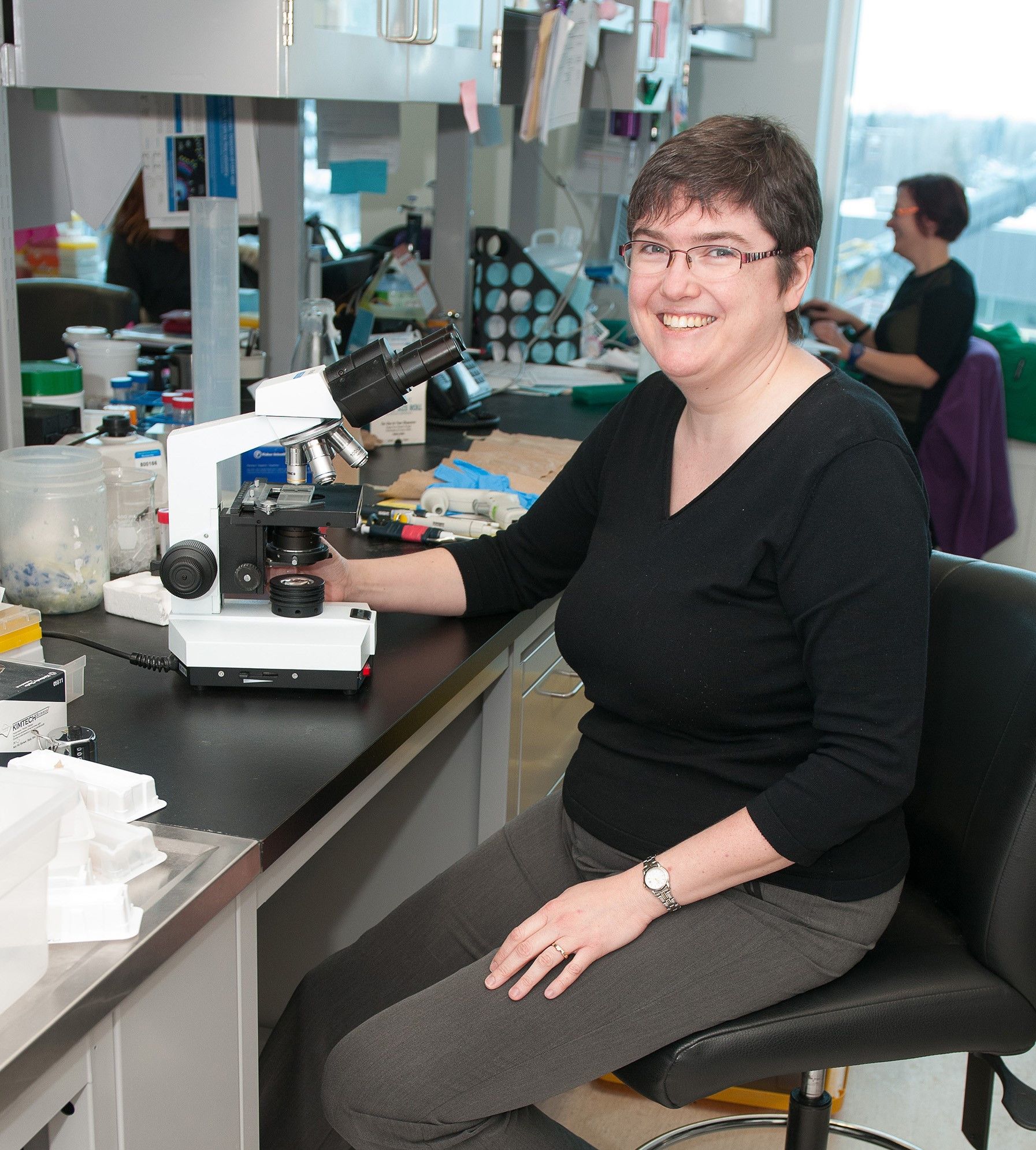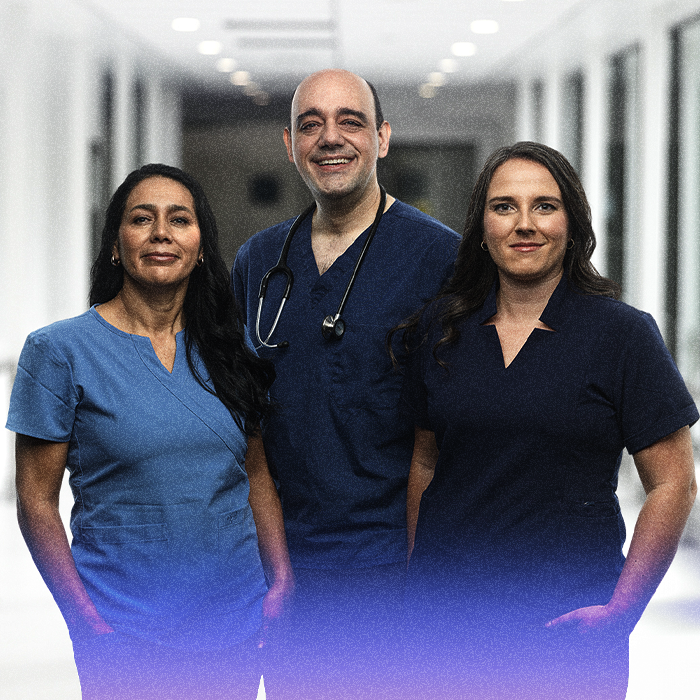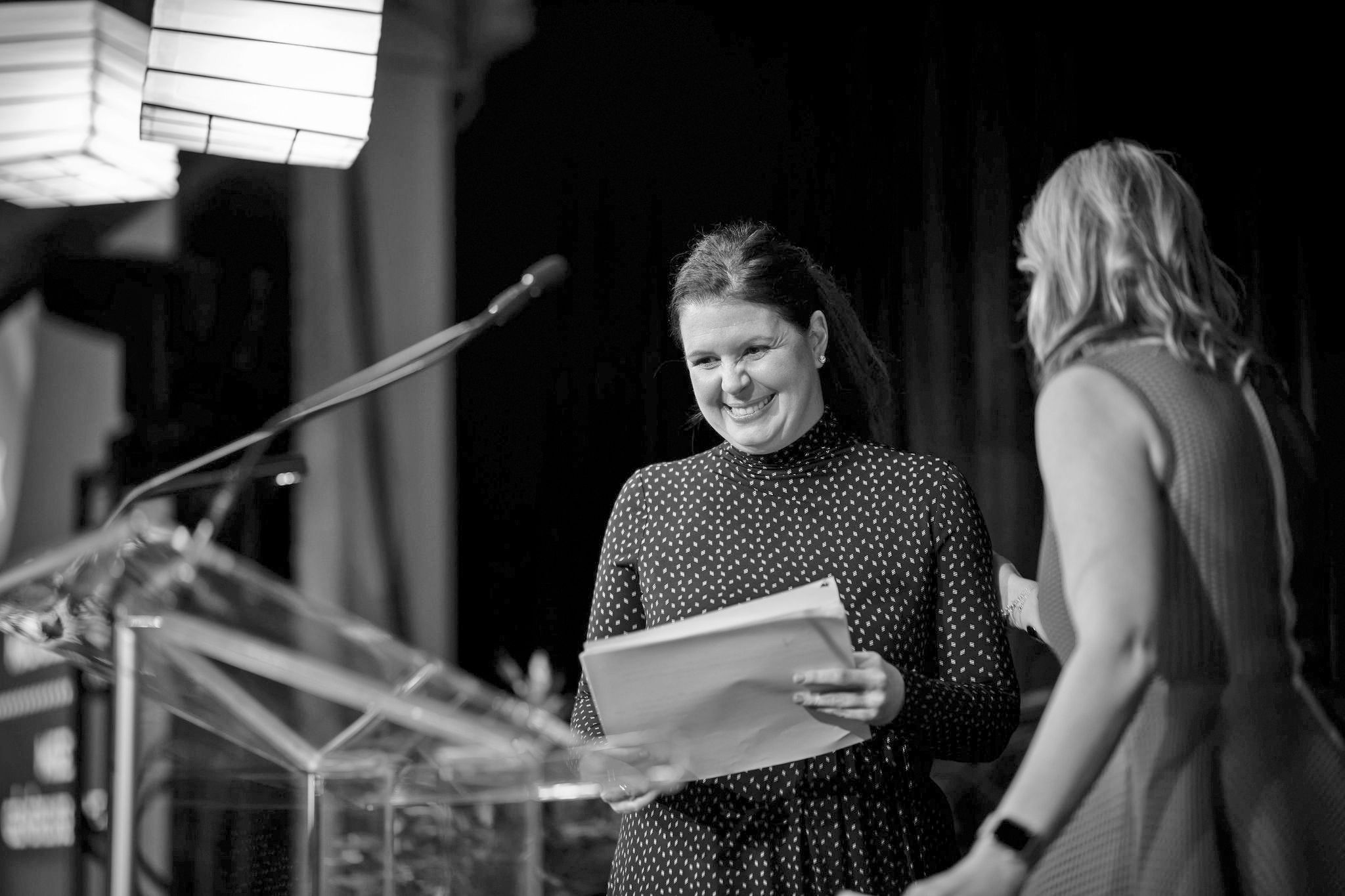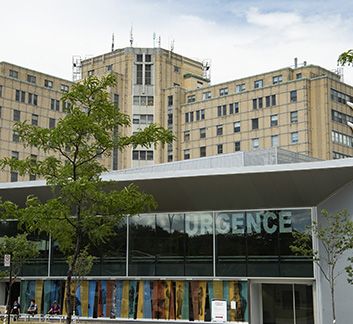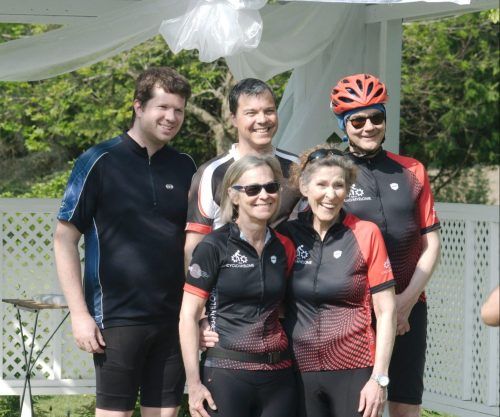Portrait: Sylvie Lesage, researcher in cellular immunogenetics
16 June 2020

Sylvie Lesage in her laboratory
Head of the Cellular Immunogenetics Research Unit at the Maisonneuve-Rosemont Hospital Research Centre, Dr. Sylvie Lesage reveals the nature and objective of her work and the hope it holds for patients.
What is the focus of your research, your work?
Sylvie Lesage: We study the cells of the immune system, commonly called “white blood cells,” that help us fight infections and prevent cancer.
However, in some cases, white blood cells attack our own organs, causing autoimmune diseases: type 1 diabetes, rheumatoid arthritis, multiple sclerosis, etc.
Our individual ability to fight infections, cancer or develop autoimmune diseases is, in part, defined by our genetic code. It is our genes that dictate our ability to produce the correct number and type of white blood cells.
The research program in my lab is three-fold:
- Understanding how genes influence the composition of our immune system.
Who has more cells to fight cancer? Who has fewer cells to fight infection? Which genes are responsible for these variations? - Defining the role of each cell type in the immune system.
The immune system is made up of several cell types, each with unique functions. The function of some cells is not well defined. By defining their functions, we can then use them in therapy. - Establishing protocols for cell therapies.
By combining the information acquired about genes and cell functions, we hope to develop new therapeutic approaches to prevent or treat diseases such as cancer and autoimmune diseases.
What are the differences between autoimmune diseases and cancers?
S. L.: Both types of diseases involve the immune system.
Autoimmune diseases
- The immune system attacks healthy tissue: heart, eyes, liver, pancreas, nervous system, skin, intestines.
- The attack on healthy tissues causes chronic, debilitating diseases that can lead to death. Approximately two million Canadians have an autoimmune disease. In the laboratory, we mainly study type 1 diabetes (attack on the pancreas) and colitis (attack on the intestines). We seek to prevent immune system cells from attacking healthy tissues, while leaving cellular activities against infection intact.
Cancer
- Like autoimmune diseases, there are several types of cancers: it all depends on the tissues affected. The role of the immune system is to recognize cancer cells and eliminate them before they form a tumour. Cancer is less prevalent than autoimmunity, but is responsible for almost one-third of deaths in Canada each year.
- Unlike treatment for autoimmune diseases, our goal is to increase the ability of the immune system to eliminate tumours without causing autoimmune diseases.
In both cases, the immune system must be in perfect balance in order to regain health.
Where does Maisonneuve-Rosemont Hospital fit in?
S. L.: The Maisonneuve-Rosemont Hospital Research Centre is the ideal place to carry out this research program.
We are surrounded by researchers, clinicians, and even clinician-scientists, all working together towards the same goal: improving population health.
For the autoimmune diseases project, I collaborate with a remarkable team in endocrinology. They identify patients interested in our projects. These patients generously donate blood samples so that we can study their immune systems.
For cancer, I work closely with a large team of hematologists. In fact, we have joint grants and, together, we have published articles detailing the progress of our work. We aim to bring this project to a clinical phase, to treat patients. I also collaborate with surgical oncologists, anesthesiologists, and many others.
In addition to interactions with clinicians and clinician-scientists, I am in daily contact with excellent researchers. These collaborations and stimulating exchanges foster scientific advances.
What is the greatest hope your research holds for patients? What is the therapeutic goal of your work?
S. L.: In a hospital setting, we always keep patients in mind. Since I opened my laboratory in 2005, my goal has been to find a treatment for type 1 diabetes.
This project is in the preclinical phase, a very exciting step, which precedes patient trials! In addition to type 1 diabetes, this treatment could also be used to treat an autoimmune-type disease that occurs after aggressive treatment for blood cancers.
About Sylvie Lesage
- Director of the Research Centre
- Ph. D. in Immunology
- Head of the Cellular Immunogenetics Research Unit
- Full Professor, Department de Microbiologie et d Immunologie, Université de Montréal
˃ Learn more about Dr. Sylvie Lesage.

